|
|
|
Книги Turgenev Ivan

|
In a series of nine letters, the narrator tells his friend how he introduced Vera Nikolayevna, a married woman who had been forbidden as a child to read fiction and poetry, to the intellectual pleasures of Goethe's masterpiece. Opening up in front of Vera's eyes is not only the realm of imagination, but also a world of unbridled feelings and tempestuous passions, which can only shatter the comfort and safety of her existence and force her to set off on a journey of spiritual awakening. |

|
This new translation by Richard Freeborn makes Turgenev's masterpiece about the conflict between generations seem as fresh, outspoken, and exciting as it was to those readers who first encountered its famous hero. The controversial portrayal of Bazarov, the 'nihilist' or 'new man', shocked Russian society when the novel was published in 1862. The image of humanity liberated by science from age-old conformities and prejudices is one that can threaten establishments of any political or religious persuasion, and is especially potent at the present time. Richard Freeborn is the first translator to have had access to Turgenev's working manuscript. An appendix contains the first English translation of some of Turgenev's preparatory sketches for the novel. |

|
«Перед вами книга из серии «Классика в школе», в которой собраны все произведения, изучающиеся в начальной школе, средних и старших классах. Не тратьте время на поиски литературных произведений, ведь в этих книгах есть все, что необходимо прочесть по школьной программе: и для чтения в классе, и для внеклассных заданий. Избавьте своего ребенка от длительных поисков и невыполненных уроков. В книгу включены произведения И.С. Тургенева, которые изучают в 5 классе.» |

|
«Перед вами книга из серии «Классика в школе», в которой собраны все произведения, изучающиеся в начальной школе, средних и старших классах. Не тратьте время на поиски литературных произведений, ведь в этих книгах есть все, что необходимо прочесть по школьной программе: и для чтения в классе, и для внеклассных заданий. Избавьте своего ребенка от длительных поисков и невыполненных уроков. В книгу включены роман И.С. Тургенева «Отцы и дети» и критическая статья Д.И. Писарева «Базаров», которые изучают в 10 классе.» |

|
«Turgenev's final novel, Virgin Soil traces the destinies of several middle-class revolutionaries who seek to «go to the people» by working on the land and instilling democratic ideas in the countryside's locals. They include the daydreaming impoverished young tutor Nezhdanov — employed by the liberal councillor Sipyagin and his vain and beautiful wife Valentina — the naive young radical Maryanna and the progressive factory manager Solomin. Their liaisons, intrigues and conspiracies, set against the backdrop of Tsarist Russia, form the matter of Turgenev's most ambitious and elaborate work, which cemented the author's place in the West as Russia's foremost novelist while at the same time proving controversial at home — culminating in the arrest of fifty-two real-life revolutionaries barely a month after it was published.» |

|
This volume features two of Turgenev's best works of short fiction: the touching First Love (1860), a semi-autobiographical novella, and The Diary of a Superfluous Man (1850), the fascinating tale of a Russian Hamlet. Both provide superb introductions to the author's keen social perception, rich characterization, and narrative command. |

|
No, no, I've got your word for it, I've got to die... you promised me... you told me... Turgenev's accounts of hunting in rural Russia, and the extraordinary characters he meets there. Introducing Little Black Classics: 80 books for Penguin's 80th birthday. Little Black Classics celebrate the huge range and diversity of Penguin Classics, with books from around the world and across many centuries. They take us from a balloon ride over Victorian London to a garden of blossom in Japan, from Tierra del Fuego to 16th-century California and the Russian steppe. Here are stories lyrical and savage; poems epic and intimate; essays satirical and inspirational; and ideas that have shaped the lives of millions. Ivan Turgenev (1818-1883). Turgenev's works available in Penguin Classics are Fathers and Sons, First Love, Home of the Gentry, On the Eve, Rudin, Sketches from a Hunter's Album, Spring Torrents and Three Sketches from a Hunter's Album. |

|
Set in nineteenth-century Russia, as the country was emerging from the painful legacy of serfdom, Fathers and Sons' theme is universal: the ideological conflict between generations. At its center are Bazarov — a posturing nihilist who rejects all social institutions — and Arkady, who has been taken in by Bazarov's revolutionary ideas. When they return from university in St Petersburg to visit their parents, their modern cynicism collides with the liberal-minded and reformist nature of their elders. Emotional concerns complicate political principles, as always, while deepening and confusing alliances. Political and domestic, witty and stern Fathers and Sons is a fresh and compassionate masterpiece that is considered to be Turgenev's best novel. |

|
On one level the novel is about the homecoming of Lavretsky, who, broken and disillusioned by a failed marriage, returns to his estate and finds love again — only to lose it. The sense of loss and of unfulfilled promise, beautifully captured by Turgenev, reflects his underlying theme that humanity is not destined to experience happiness except as something ephemeral and inevitably doomed. On another level Turgenev is presenting the homecoming of a whole generation of young Russians who have fallen under the spell of European ideas that have uprooted them from Russia, their home, but have proved ultimately superfluous. In tragic bewilderment, they attempt to find reconciliation with their land. |

|
«Иван Сергеевич Тургенев — выдающийся русский писатель, бесспорный классик мировой литературы, безупречный стилист, знаток русской жизни. Автор знаменитых произведений о любви «Дворянское гнездо», «Первая любовь», «Вешние воды» и не менее известных романов о России, об открытом автором «лишнем человеке» — «Рудин», «Накануне», «Отцы и дети». История любви неординарного Базарова, не сумевшего найти применение своим выдающимся качествам ни на профессиональном поприще, ни в личной жизни, и в наши дни трогает и заставляет сопереживать главному герою, его удивительной цельности и силе личности, а также недовоплощенности в русской жизни столь щедро одаренных природой людей.» |

|
When the down-at-heel Princess Zasyekin moves next door to the country estate of Vladimir Petrovich's parents, he instantly and overwhelmingly falls in love with his new neighbour's daughter, Zinaida. But the capricious young woman already has many admirers and as she plays her suitors against each other, Vladimir's unrequited youthful passion soon turns to torment and despair — although he remains unaware of his true rival for Zinaida's affections. Set in the world of nineteenth-century Russia's fading aristocracy, Turgenev's story depicts a boy's growth of knowledge and mastery over his own heart as he awakens to the complex nature of adult love. |

|
В книгу включены самые известные и любимые читателями произведения Ивана Тургенева о любви. |

|
«Заглавие своего произведения сам автор объяснял так: «Повесть «Накануне» названа мною так ввиду времени ее появления (1860 — за год до освобождения крестьян)... Новая жизнь началась тогда в России — и такие фигуры, как Елена и Инсаров, являются провозвестниками этой новой жизни». Небывалый общественный подъем накануне коренных преобразований в жизни России и послужил непосредственным стимулом к работе над романом. Тургенев занят поиском положительного героя — молодого, сильного, с новой идеологией, «сознательно-героической натуры». По свидетельствам современников писателя, революционно настроенная молодежь 1860-1870-х годов подражала Елене и Инсарову. Однако роман не случайно открывается спором о счастье и долге. Елене и Инсарову кажется, что их любовь служит высшей цели. Но сама жизнь вступает в противоречие с надеждами и чаяниями героев. Их историю любви Тургенев завершает финалом, который, по словам А.П. Чехова, «полон трагизма».» |
|